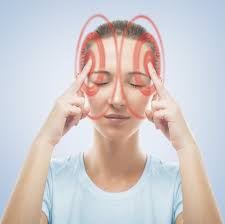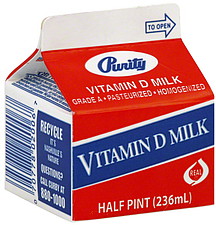Vertigo can greatly affect the quality of your life. It is more like a hallucination that makes you feel as if the world around you is spinning. You may feel as if you are in motion even when you are standing still. You are likely to have an episode of vertigo when you turn your head. These episodes are going to become severe and prolonged as you age. You can try a number of treatment options, but what works for someone else may not be effective for you. Some people believe that vertigo and vitamin D have a connection. Is it true?

The Relationship Between Vitamin D and Vertigo
Recent studies have found that you may have severe episodes of benign paroxysmal positional vertigo (BPPV) when you have vitamin D deficiency as there is a connection between vertigo and osteoporosis.
You develop osteoporosis with reductions in bone mineral density, and this may also lead to recurrence of BPPV. Vitamin D can help maintain healthy bones and lower risk of falls and fractures. What it means is that vitamin D helps with vertigo by treating your osteoporosis and improving bone mineral density.
What Should You Do?
Before going any further, you should first have your vitamin D levels checked. You can have your vitamin-D level checked by taking a 25 hydroxyvitamin D blood test. Anything lower than 30 μg/mL means you have vitamin D deficiency. Many experts believe that you should keep your vitamin D levels higher than 50 μg/mL.
If you are deficient in vitamin D, increasing your intake of this vitamin may make a huge difference and limit the recurrence of BPPV. You may have to take up to 5,000 IU of vitamin D a day to raise your levels to the normal range. Spending some time out in the sun (15-30 minutes a day) may also help.
Natural Ways to Deal with Vitamin D Deficiency
Once you understand the connection between vitamin D and vertigo, and know that you are deficient in this vitamin, you can try natural ways to treat your vitamin D deficiency, thus relieving your vertigo.
1. Eat Food Rich in Vitamin D
You can increase your intake of foods high in vitamin D to deal with your deficiency. Some of the best options include salmon, halibut, mackerel, rainbow trout, and tuna. Similarly, cod liver oil is another rich source of this vitamin – a tablespoon of cod liver oil provides you with 1,360 IU of vitamin D. Cheese, egg yolks, and mushrooms are also some nice sources of vitamin D.
2. Eat Food Fortified with Vitamin D
Many foods that may not contain vitamin D can still be fortified with it. Some common options include yogurt, milk, bread, cereals, orange juice, and soy products. Soy milk and tofu may as well be fortified with vitamin D. Just pay attention to nutrition labels before making a purchase.
3. Consume Fat
You have to increase your intake of fat because your body cannot absorb vitamin D in the absence of enough fat. Increasing your intake of vitamin D is not going to help if your body fails to absorb it properly. You can stick to high-fat diet for a short time to see if it produces positive results.
Other Causes of Vertigo
There may be a link between vitamin D and vertigo, but there can be other reasons why you are suffering from this debilitating condition. For instance:
1. Head Injury
You may develop this condition if you have sustained a head injury. You should seek immediate medical help if you feel dizzy or experience symptoms of vertigo after a head injury.
2. Labyrinthitis
The condition refers to the inflammation of the labyrinth which is a structure deep inside your inner ear, and controls hearing and balance. The inflamed labyrinth starts sending conflicting signals to your brain, which results in dizziness and vertigo. If your vertigo is due to labyrinthitis, you may have other symptoms as well, such as hearing loss, vomiting, nausea, ear pain, and tinnitus.
3. Vestibular Neuronitis
Also called vestibular neuritis, this inner ear condition leads to the inflammation of the nerve that connects the labyrinth to the brain. A viral infection is usually the underlying cause of this inflammation. If you have vertigo because of vestibular neuronitis, you may also have other symptoms such as nausea, unsteadiness, and vomiting.
4. Medications
You may experience episodes of vertigo after starting a new medication. Many medications produce several side effects, and vertigo may as well be on the list. Be sure to let your doctor know if your new medication is causing symptoms related to vertigo.
5. Meniere's Disease
Now you know that vitamin D and vertigo are related; actually, Meniere's disease can also cause symptoms of vertigo. It affects the inner ear and results in vertigo as well as tinnitus, hearing loss, and aural fullness. People with this disease experience sudden attacks of vertigo. Those episodes may last for hours or days and may be accompanied with vomiting and nausea. A combination of medication and balanced diet helps manage the symptoms more effectively.
6. Central Vertigo
Caused by problems in specific part of your brain, such as the brainstem or the cerebellum, central vertigo can make you experience symptoms associated with BPPV. Some other causes of central vertigo are migraines, multiple sclerosis, acoustic neuroma, and a transient ischemic attack. Sometimes, a tumor in the cerebellum may also cause central vertigo.



